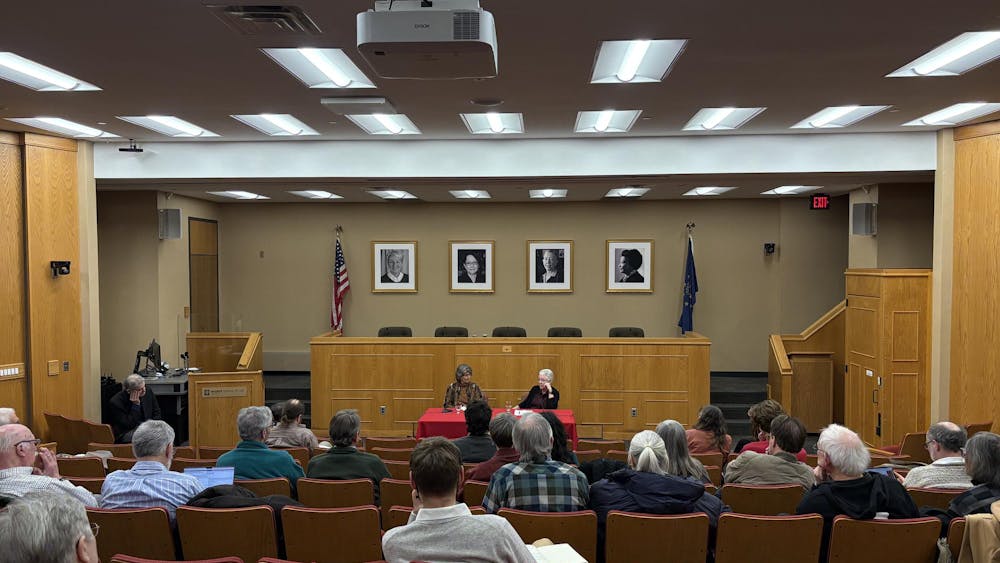NORMAL, Ill. – Researcher David Levy from the University of Maastricht in the Netherlands has provided an argument for his prediction that by the year 2050 humans will be able to marry robots and consummate these vows. \nLevy presented his thesis, “Intimate Relationships with Artificial Partners,” on Oct. 11. He argued that robots will become so human-like in appearance, function and personality that numerous people will fall in love with them, have sexual intercourse with them and want to marry them. \nLevy, who recently completed his Ph.D. work on the matter of human-robot relationships, predicts that by the year 2050, Massachusetts will be the first jurisdiction in the United States to legalize marriage with robots. \n“It’s true that we’re bonding with technology in various ways, but I don’t think we will have marriage with an artifact by 2050,” Henrik Christensen, founder of the European Robotics and Research Network, said. \n“There are, indeed, very bright people working in the field of artificial intelligence and robotics who believe that there will be robots as intelligent – in fact, more intelligent – than humans by 2050,” said David Anderson, philosophy professor and director of The Mind Project. “However, I do believe that a majority of people working in cognitive science, and even those specializing in artificial intelligence and robotics, do not believe that robots will approach the intelligence and the emotional sophistication of human beings in less than 50 years. And if the robots are not nearly as smart as humans or as interesting, I doubt that anyone will want to marry one.”\nLevy has predicted that Massachusetts will be the first jurisdiction to legalize human-robot marriage because it has been at the forefront of same-sex marriage and there are a lot of high-tech research organizations such as Massachusetts Institute for Technology. \n“It is really the understanding of ‘person’ that will most need to be expanded to include machines. If at some future point most people accept very intelligent machines as ‘persons’ then, and only then, will they be able to consider the next step – marriage,” Anderson said. \nChristensen said some of the advancements that have been made in technology so far point to the possibility of marriage with robots. Not only are the robots being built looking very human-like, but the artificial intelligence has developed to the point that humans are able to carry on a dialogue and have meaningful interaction with robots. \nChristensen explained humans are already able to create robots with feelings, also known as “affective systems.” These robots can pick up the tone of a human voice and respond to it. They can express emotions, such as being happy or angry or upset. \n“Even as a roboticist, I don’t understand why people would want to do that, but it is true that people are starting to have associations with artifacts,” Christensen said. \nAnderson has a different point of view. \n“If you could build a machine that was clever, kind, noble, sexy, had a great sense of humor and understood you better than any human being ... why wouldn’t you want to marry it? The question is, why do you think such a thing is possible?” Anderson said. \nChristensen believes advancements need to be made to the point that people cannot distinguish between humans and robots. Only then will marriage with robots become a reality. \n“If you touch a robot, you can immediately tell it’s a robot. We need to blur the boundary much more, so you can’t tell the difference,” Christensen said.
Researcher says humans will be able to marry robots by 2050
Roboticist thinks androids could become more like us
Get stories like this in your inbox
Subscribe





